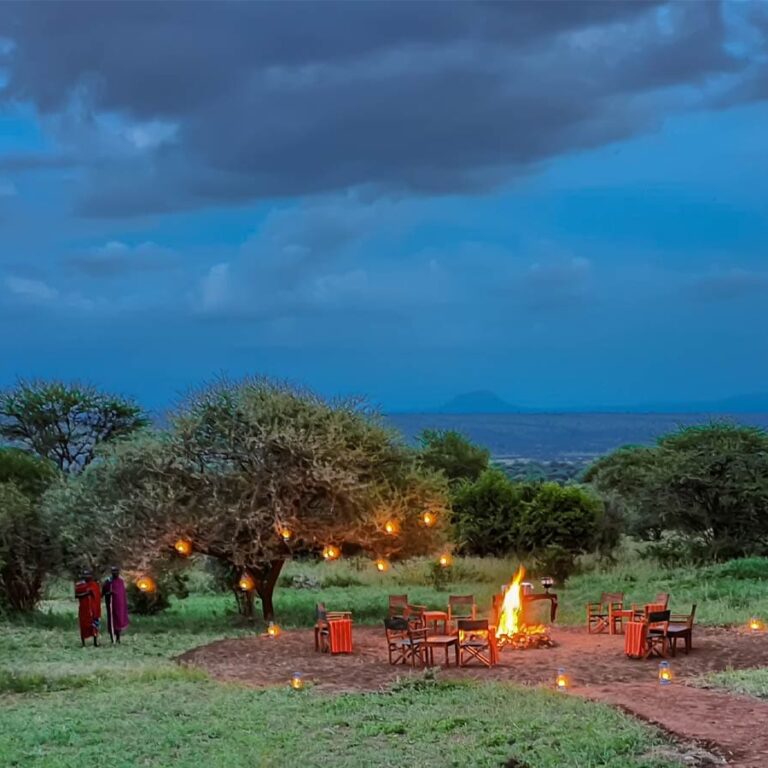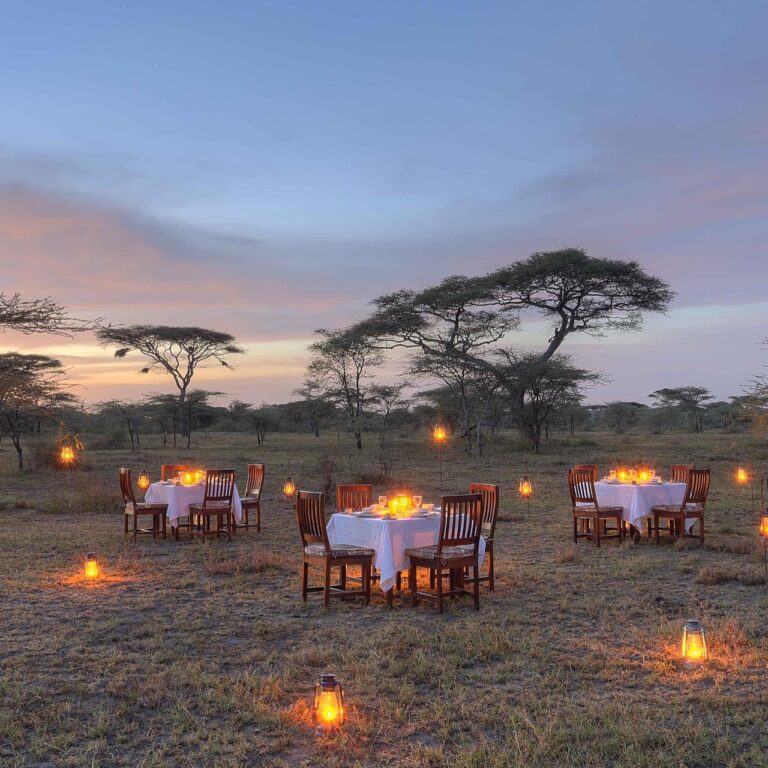Embarking on a Journey of Respect: Planning a Responsible Serengeti Safari,. The vast plains of the Serengeti, a name that whispers of endless horizons and the raw drama of the wild, beckon travelers from across the globe. Visions of the Great Migration, the roar of lions at dusk, and the graceful glide of giraffes against the acacia-dotted landscape dance in our imaginations. But as we dream of witnessing these natural wonders firsthand, a crucial question arises: Is it possible to plan a Serengeti safari that not only fulfills our adventurous spirit but also treads lightly on this precious ecosystem and benefits the communities who call it home?
The resounding answer is yes. In fact, with conscious choices and a commitment to responsible travel, a Serengeti safari can become a powerful force for conservation and a deeply enriching experience for both the traveler and the destination. Let’s embark on a journey to explore the key pillars of planning a responsible Serengeti adventure.
1. Choosing an Eco-Conscious Safari Operator: Your Ethical Compass
The foundation of a responsible safari lies in the hands of your chosen operator. They are the architects of your experience, and their values will significantly shape the impact of your journey. Seek out operators who genuinely prioritize sustainability, demonstrating a commitment that goes beyond mere lip service. Look for operators who:
✓Have clear environmental policies: Do they actively work to minimize their environmental footprint through waste reduction, energy efficiency, and water conservation? ✓Support local communities: Do they employ local guides and staff, source goods and services locally, and contribute to community development projects? ✓Adhere to ethical wildlife practices: Do they ensure their guides respect wildlife viewing distances, avoid disturbing animal behavior, and actively discourage any form of exploitation? ✓Hold relevant certifications: Do they possess certifications from recognized sustainable tourism organizations? ✓Are they transparent about their practices? Are they open to sharing information about their sustainability initiatives and community involvement? By carefully vetting your safari operator, you align yourself with a partner who shares your values and ensures your journey contributes positively to the Serengeti ecosystem and its people.
2. Traveling During Off-Peak Seasons: A Gift to Nature and Your Wallet
The allure of witnessing the Great Migration’s dramatic river crossings often draws crowds to the Serengeti during peak season. However, consider the profound benefits of traveling during the quieter, off-peak months. Off-peak travel offers:
✓Reduced environmental impact: Fewer visitors translate to less pressure on resources, less vehicle traffic, and a diminished disturbance to wildlife. ✓More intimate wildlife encounters: With fewer crowds, you’ll likely enjoy more exclusive and immersive wildlife sightings. ✓Lower prices: Accommodation and tour costs are often significantly lower during the off-season, making a responsible safari more accessible. ✓Unique perspectives: The Serengeti landscape transforms with the seasons, offering diverse and captivating experiences beyond the Great Migration. Lush green landscapes, abundant birdlife, and the calving season are just a few of the wonders that await during the quieter months. Choosing to travel during the off-peak season is a conscious decision that benefits both the environment and your travel experience. Check this: 10 Things to Consider When Planning African Safari
3. Staying in Responsible Safari Lodges and Camps: Havens of Sustainability
Your choice of accommodation plays a vital role in the sustainability of your safari. Opt for lodges and camps that are designed and operated with environmental and social responsibility at their core. Responsible accommodations often feature:
✓Eco-friendly construction. Utilizing local and sustainable materials, minimizing land impact, and blending harmoniously with the natural surroundings. ✓Renewable energy sources. Harnessing solar power and other clean energy alternatives to reduce reliance on fossil fuels. ✓Water conservation measures. Implementing rainwater harvesting, efficient water fixtures, and wastewater treatment systems. ✓Waste management programs. Actively reducing, reusing, recycling waste, and composting organic materials. ✓Support for local communities. Employing local staff, sourcing food and supplies locally, and contributing to community development initiatives. ✓Minimal impact on the surrounding environment. Implementing measures to reduce noise and light pollution and protecting the natural vegetation. By choosing to stay in responsible lodges and camps, you directly support businesses that prioritize conservation and community well-being.
4. Respect Wildlife and Safari Etiquette: Being a Considerate Guest
Witnessing wildlife in their natural habitat is a privilege that comes with a responsibility to observe them respectfully. Adhering to safari etiquette ensures the safety and well-being of the animals and enhances the experience for everyone. Essential safari etiquette includes:
✓Maintaining a safe distance. Always follow your guide’s instructions and never approach or harass wildlife. Use binoculars and telephoto lenses for closer views. ✓Keeping noise levels down. Loud talking or sudden movements can startle and stress animals. Speak softly and move calmly. ✓Never feed animals. Feeding wildlife disrupts their natural behavior, makes them dependent on humans, and can be harmful to their health. ✓Staying on designated tracks. Driving off-road can damage fragile ecosystems and disturb wildlife. Avoiding the use of flash photography: The sudden flash can disorient and frighten animals, especially nocturnal species. ✓Respecting their space. Remember that you are a visitor in their home. Observe their behavior without interference. By practicing mindful observation and respecting safari etiquette, you contribute to a positive and sustainable wildlife viewing experience.
5. Supporting Local Communities: Empowering Through Tourism
A responsible safari recognizes the vital role of local communities in the conservation of the Serengeti. By actively supporting them, you contribute to their economic empowerment and foster a sense of ownership and stewardship towards the natural resources. Ways to support local communities include:
✓Choosing operators and accommodations that prioritize local employment. Ensure that local people benefit directly from tourism through job creation and fair wages. ✓Purchasing locally made crafts and souvenirs. Support local artisans and businesses by buying authentic, handcrafted items. ✓Visiting local villages and cultural centers (when done respectfully). Gain insights into their traditions and contribute directly to their economy through entrance fees or purchases. ✓Tipping local guides and staff appropriately. Recognize their hard work and expertise with a generous gratuity. ✓Supporting community-based tourism initiatives. Opt for experiences that are directly managed and benefit local communities. By engaging with and supporting local communities, you ensure that tourism acts as a catalyst for positive social and economic development.
6. Offsetting Your Carbon Footprint: Mitigating Your Travel Impact
Air travel, in particular, contributes significantly to carbon emissions. While the experience of a Serengeti safari is invaluable, it’s crucial to acknowledge and mitigate its environmental impact by offsetting your carbon footprint. Ways to offset your carbon footprint include:
✓Donating to reputable carbon offsetting programs. These programs invest in projects that reduce or remove carbon dioxide from the atmosphere, such as reforestation or renewable energy initiatives. ✓Choose certified and transparent programs. ✓Selecting airlines with lower emissions. Research airlines that have implemented fuel-efficient practices and invest in sustainable aviation fuels. ✓Packing light. Reducing the weight of your luggage can contribute to lower fuel consumption. ✓Considering longer stays. A longer trip can make the carbon footprint of your travel more worthwhile and allow for a deeper immersion in the destination. Offsetting your carbon footprint is a responsible step towards minimizing the environmental impact of your journey.
7. Educate Yourself Before You Go: Becoming an Informed Traveler
Preparation is key to a responsible and enriching safari experience. By taking the time to educate yourself about the Serengeti’s ecosystem, its challenges, and the local culture, you become a more informed and engaged traveler. Educate yourself on:
✓The Serengeti’s ecosystem. Understand the interconnectedness of its flora, fauna, and natural processes. ✓Conservation challenges. Learn about the threats facing the Serengeti, such as poaching, habitat loss, and human-wildlife conflict. ✓Local cultures and customs. Familiarize yourself with the traditions and etiquette of the communities you may encounter. ✓Responsible tourism principles. Understand the importance of minimizing your impact and maximizing your positive contributions. Armed with knowledge, you can make more informed decisions and appreciate the Serengeti on a deeper level.
8. Supporting Conservation-Focused Experiences: Contributing to Protection
Some safari experiences go beyond mere wildlife viewing and actively contribute to conservation efforts. By choosing these options, you directly support the protection of the Serengeti’s natural heritage. Look for experiences that:
✓Involve participation in wildlife monitoring or research. Some lodges or organizations offer opportunities to accompany researchers or rangers in their work. ✓Support anti-poaching initiatives. Choose operators who actively contribute to or partner with anti-poaching patrols. ✓Focus on habitat restoration projects. Some initiatives involve tree planting or other efforts to restore degraded areas. ✓Educate visitors about conservation issues. Opt for tours and activities that raise awareness about the challenges facing the Serengeti. By participating in conservation-focused experiences, your safari becomes a direct contribution to the long-term survival of this incredible ecosystem.
9. Avoiding Irresponsible Tourist Activities: Saying No to Exploitation
Just as there are responsible ways to experience the Serengeti, there are also activities that can be harmful and should be avoided. Avoid activities that:
✓Involve direct interaction with wild animals. Petting, feeding, or posing for photos with captive wildlife can be stressful for the animals and disrupt their natural behavior. ✓Support the trade in illegal wildlife products. Never purchase souvenirs made from endangered species. ✓Contribute to habitat destruction. Avoid activities that damage the environment, such as littering or driving off-road in unauthorized areas. ✓Respect local cultures. Be mindful of local customs and traditions, and avoid behaviors that may be considered offensive. By consciously avoiding irresponsible tourist activities, you contribute to the ethical and sustainable management of the Serengeti.
10. The Importance of Guided Tours: Expertise and Responsibility Hand-in-Hand
While the idea of self-driving through the Serengeti might seem adventurous. Opting for guided tours with experienced local guides is a cornerstone of responsible tourism. Local guides offer:
✓Expert knowledge of the ecosystem and wildlife. Provide invaluable insights into animal behavior, the local flora and fauna, and the intricate workings of the Serengeti. ✓Adherence to park regulations and ethical viewing practices. Ensure that visitors respect wildlife and the environment. ✓Enhanced safety. They are trained to navigate the terrain and handle potential wildlife encounters. ✓Support for local economies. Hiring local guides directly benefits the community. ✓Interpretation and cultural understanding. They can bridge cultural gaps and provide a deeper understanding of the local context. By choosing guided tours, you benefit from local expertise while ensuring that your exploration of the Serengeti is conducted responsibly and respectfully.
Ultimate guide to an ethical Serengeti Safari experience. Embark on the Ultimate Guide to an Ethical Serengeti Safari, where adventure meets responsibility. Discover how to explore Tanzania’s iconic plains while respecting wildlife, supporting local communities, and minimizing your impact. This guide highlights eco-lodges, responsible tour operators, and cultural sensitivity tips to ensure your journey protects the Serengeti’s natural and cultural heritage. Whether tracking the Great Migration or visiting Maasai villages, this safari experience promises unforgettable memories rooted in sustainability and respect. Travel wisely, leave only footprints, and help preserve the wild for generations to come.
Tips for Planning an Ethical Serengeti Safari Experience. Planning an ethical Serengeti safari begins with mindful choices. Choose eco-friendly lodges, support locally-owned tour operators, and ensure your guides follow responsible wildlife viewing practices. Travel during off-peak seasons to reduce environmental strain and avoid overcrowding. Respect local cultures by learning basic customs and supporting community-based tourism. Limit plastic use, conserve water, and leave no trace behind. These simple yet powerful tips help protect the Serengeti’s ecosystem and support its people, ensuring your adventure contributes positively to one of Africa’s most iconic landscapes.
A Legacy of Respect: Your Role in Serengeti’s Future
Planning a responsible Serengeti safari is not just about ticking off boxes; it’s about embracing a mindset of respect – respect for the wildlife, the environment, and the people who call this extraordinary place home. Every choice you make, from selecting your operator to the way you observe wildlife, has an impact.








